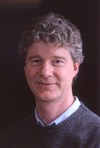New Dimensions Interview
I'm pleased to let you know that "New Dimensions" radio is featuring me on their worldwide radio broadcast on Wednesday, May 11-17, 2011. "THE POWER OF THE GRIMM BROTHER'S COLLECTION OF FOLKTALES with ALLAN G. HUNTER, Ph.D." It is hosted by Justine Willis Toms. Program #3394
It will be airing the week, May 11 – 17, 2011 (broadcast week begins on Wednesdays) on stations throughout the U.S. and Australia. You can also hear it streaming for free on the New Dimensions website for two weeks beginning May 11th or you can download it for a small fee at that time. Go to "Listen" on their website menu for a list of stations and carry "New Dimensions." www.newdimensions.org
This interview will part of their wonderful archive as well as over 900 other dialogues in their archive (including 1 other interview with Hunter #3257). I am pleased to let you know that New Dimensions is working in partnership with Stanford University Library to digitize their entire archive of over 6000 hours of deep dialogues with hundreds of the most innovative movers and shakers on the planet. More hours are added to the archive every week.
Description of the program:
THE POWER OF THE GRIMM BROTHER'S COLLECTION OF FOLKTALES with ALLAN G. HUNTER, Ph.D.
Program #3394
Topics explored in the dialogue include:
· Why the Grimm Brothers folktales stand out as a collection
· What does magic represent in the Germanic folktales
· What is the "un-Disneyfied" story of Cinderella and its significance
· Why Grimm's tales are often disturbing
· How these are healing tales for the community and society, both then and now
· How the Frog Prince story is one of empowerment for women
· What does the ugly toad stand for psychologically in folktales
Fairytales have given pleasure and delight for centuries, and ultimately many of them have been a source of wisdom for generations of people, who had no psychology textbooks to reference, and no certified therapists to consult. However, in recent decades we've "Disneyfied" them and assimilated commercialized versions, while the real tales full of wisdom remain unread. The collection of tales by the Grimm Brothers deal with some very murky human passions, and they hold the possibility of a productive way of being, on the other side of difficulty. In the early 1800s, the Grimm brothers carefully wrote down stories from itinerant storytellers, who were basically an endangered species and dying out. Being academics, they recognized the power of these folktales and understood they shouldn't be lost. Hunter points out, "We can't get to that real wisdom if we don't get back to the original tales and see how very different they are from Disney's wonderful, but saccharin and sucrose versions. We need to get back to the originals or we lose that wisdom." (hosted by Justine Willis Toms)
Born in England in 1955, Allan G. Hunter gained his degrees at Oxford University, emerging with a doctorate in English Literature in 1983. He is a therapist and, for the past 20 years, a professor of literature at Curry College in Massachusetts. He is the author of Joseph Conrad and the Ethics of Darwinism, (Routledge Kegan & Paul 1983), Life Passages (Kroshka Books 2000), and The Sanity Manual (Kroshka Books 1999); his work as a therapist led to uncovering the presence of the six archetypes in literature, and he is author of Stories We Need To Know: Reading Your Life Path in Literature (Findhorn Press 2008), Write Your Memoir: The Soul Work of Telling Your Story (Findhorn Press 2010), as well as Princes, Frogs, and Ugly Sisters; The Healing Power of the Grimm Brothers' Tales (Findhorn Press 2010). To learn more about the work of Allan G. Hunter go to www.allanhunter.net
Program #3394 1 hour



